1. Evaluation enablers
Mentor: Duncan Rintoul | Associate Mentor: Virginia Poggio
‘Evaluation enablers’ is aimed at people in government, NGOs or philanthropic organisations whose role is to support the commissioning of external evaluations (rather than doing the evaluations themselves). We will discuss issues around the evaluation commissioning process and making evaluations useful.
Mentor: Dr Duncan Rintoul
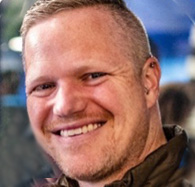
Duncan is passionate about empowering others to make a difference through good quality evaluative practice. His career in evaluation has spanned diverse roles over 25 years, including in consulting (Rooftop Social, Urbis), academia (University of Wollongong) and NSW government. He has worked across a broad range of policy areas including education, health, human services, justice and the environment.
Duncan’s active involvement in the Australian Evaluation Society (AES) underscores his dedication to the evaluation community. He served on the board from 2012 to 2015 and has consistently contributed by leading training workshops. His approach to mentoring is shaped by flexibility, collaboration, and warmth, creating environments where mentees feel supported and motivated. He fosters a culture of openness, encouraging mentees to be curious, take risks, and offer generosity in their responses to one another.
Having served as a mentor in the AES Group Mentoring Program in 2022 and 2023, and as an Associate Mentor in 2021, Duncan’s energy for creating “good vibes and high hopes” is unmistakable. His mentoring style is designed to inspire growth, with a focus on learning from one another in an environment built on trust and mutual respect.
Associate mentor: Virginia Poggio
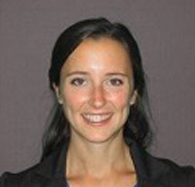
Virginia is a dedicated mentor and experienced evaluator with a passion for giving back to the Australasian Evaluation Society (AES) community and fostering deeper connections with her peers. With a solid foundation as an economist, Virginia has honed her expertise in evaluation through a diverse and impactful career. She has worked at the Inter-American Development Bank and Mathematica Policy Research in Washington, DC, where she specialised in impact evaluations and randomised controlled trials.
Her leadership experience includes heading the evaluation team for the transportation department of the city of Buenos Aires, where she contributed to significant urban development initiatives. Currently, as an Evaluation Associate at the Paul Ramsay Foundation, Virginia designs and implements evaluation and learning strategies for various grants, focusing on critical areas such as education, transportation, and public health.
Virginia’s specialisation lies in designing evaluation and learning approaches that ensure evaluations meet the needs of stakeholders and lead to practical, actionable insights. She is particularly adept at guiding clients on managing evaluation funders, creating tailored evaluation frameworks for programs and grants, and emphasising key insights that drive impact.
As a mentor, Virginia adopts a hands-on and practical approach, sharing her methods for tackling challenges and offering clear, actionable advice. She draws on her experiences to provide relatable examples, fostering an environment of trust and mutual learning. Virginia encourages open discussions within her mentoring groups, promoting collective problem-solving and constructive feedback. She is committed to recognising her mentees' strengths while helping them identify areas for development, ultimately aiming to cultivate their growth and confidence in the evaluation field.
2. Leading evaluation … when the buck stops with you
Mentors: Anne Dowden and Graham Smith
This group is for evaluators who are experienced in conducting evaluations and are now leading or starting to lead evaluations.
Together we will dive into the practical aspects of leading evaluation projects from start to finish. We’ll explore how to set clear and realistic scopes for your projects, balancing the needs and expectations of clients and managers while avoiding common pitfalls like scope creep. We’ll discuss strategies for staying on top of budgets and that resources are allocated effectively, without sacrificing quality.
Together we’ll explore how to maintain high standards throughout the evaluation, including ethical considerations, privacy concerns, and endeavouring to align your work with the best practices of the profession. We’ll examine flexible evaluation frameworks that guide projects without becoming overwhelming, and how these frameworks can drive both fieldwork and evaluative analysis.
As a lead evaluator, collaboration is key. We’ll discuss practical tips for mentoring and delegating across diverse teams, including working with cultural experts and specialists.
Co-Mentor: Anne Dowden
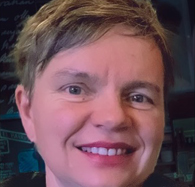
Anne is an inspiring and dedicated evaluator with over 25 years of experience, specialising in delivering high-impact evaluations for public services and government agencies. After successfully leading an evaluation team in a research business for over a decade, she established her own consultancy, which has flourished for 14 years. Anne thrives on the challenge of complex, multi-method evaluations, particularly those involving social services, health, education, vulnerable populations, and digital access.
Her approach combines deep technical expertise in evaluation frameworks with a collaborative, cross-cultural focus, she often works closely with cultural experts to ensure inclusivity and depth in her evaluations. Anne is passionate about sharing her wealth of knowledge and has a track record of running seminars, workshops, and discussions in the evaluation community, particularly in Aotearoa, New Zealand.
Anne’s mentoring style is grounded in her commitment to fostering growth in others. She creates a structured yet flexible environment where mentees can co-lead discussions and share their own project challenges. Her guidance is practical and insightful, offering tools and strategies for managing evaluation projects, navigating scope and budget, maintaining quality standards, and fostering teamwork. With Anne, mentoring is not just about passing on knowledge—it's about learning together and growing as a community of evaluators..
Co-Mentor: Graham Smith
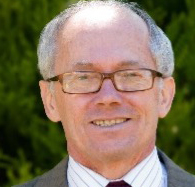
Graham brings a wealth of knowledge and experience to his role as a mentor, driven by his rewarding experience mentoring a PhD student at the University of Canberra and his passion for teaching evaluation and related topics. With over two decades of experience as a performance audit manager (1990-2010) and an evaluator for the Federal Government (2010-2023) on topics ranging from heritage and visa processing to defence mental health, Graham offers deep expertise across a broad range of subjects.
In 2019, Graham earned his Ph.D. in Government from the University of Canberra, focusing on performance measurement. This area has since become his specialty, as he has consulted and taught extensively on the topic, including delivering workshops for the Australian Evaluation Society (AES).
With respect to this topic, Graham has experience in leading (as well as being a team member) in many evaluations that have encountered a range of problems including data vagueness, client uncertainty, political pressures, resource constraints and inter-evaluation team conflicts. He has also done some commissioning and hopes to bring these experiences to bear in the mentoring process.
Graham believes in a respectful, inclusive mentoring style, where he acknowledges that he doesn't have all the answers and is eager to learn from his mentees. He fosters structured sessions while encouraging open dialogue, ensuring the group has a solid framework to explore and discuss key issues. Graham looks forward to collaborating with mentees who share his curiosity and commitment to learning.
3. Career pathways for qualitative evaluators
Mentor: David Roberts | Associate Mentor: Carla Pozo Jeria
This group will focus on career planning and navigating the challenges evaluators encounter, particularly in the area of qualitative or empowerment-focused research. Mentees will build their confidence and develop a supportive network of peers for long-term growth. Mentees will be encouraged to bring forward real-life issues and engage in collaborative discussions, in a safe and supportive environment for knowledge sharing. Combining practical guidance with facilitative learning, mentees will gain actionable insights and a clear sense of direction for their future in evaluation.
Mentor: David Roberts
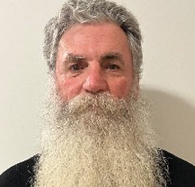
David has dedicated over 45 years to the field of evaluation, embodying a deep commitment to developing the next generation of evaluators. Since the inception of the mentoring program, David has played a pivotal role on the committee, driven by his passion for helping others enhance their confidence and skillsets. He believes that mentoring is a two-way street, providing him with invaluable opportunities to learn and broaden his own knowledge base.
With a research Master's in Evaluation and Assessment, David's academic work explored how cognitive structures influence participant responses, a perspective he brings into his practice. His extensive experience includes serving as Past President of the Australian Evaluation Society (AES) and as a member of the Board of Trustees of the International Organisation for Cooperation in Evaluation (IOCE).
David's expertise spans both quantitative and qualitative methodologies, underpinned by a strong foundation in community development principles that prioritise participation and empowerment. His diverse portfolio includes evaluations in Emergency Management, health, education and training, organisational systems, and the arts, often focusing on initiatives that drive real change in communities. His work with Culturally and Linguistically Diverse populations reflects his commitment to inclusivity and social equity.
As a mentor, David aims to empower his mentees to reflect on their career paths and navigate challenges in the evaluation field, particularly for those drawn to qualitative or empowerment-focused research. He envisions mentees concluding the program with enhanced confidence and a robust network of peers for ongoing support.
David’s mentoring approach is rooted in creating a safe space for knowledge sharing and problem-solving. Throughout the program, mentees are encouraged to present issues they face, fostering collaborative discussions informed by relevant readings. David's facilitative style ensures that each mentee leaves with practical insights and the confidence to tackle future challenges head-on.
Associate Mentor: Carla Pozo Jeria
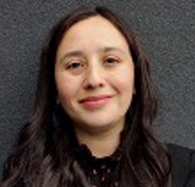
Carla is a dedicated and passionate evaluator who is committed to guiding others in their professional journeys within the evaluation field. Motivated by her own experiences and the guidance of esteemed mentor David Roberts, Carla embraces the opportunity to serve as an associate mentor, viewing it as a chance for mutual learning and growth.
Having entered the evaluation profession in 2021, Carla began her career at the Centre for Program Evaluation as a Research Assistant and Project Manager. Since then, she has gained valuable experience working as the Evaluation Manager for a Victorian Program for Schools at the Murdoch Children's Research Institute (MCRI), part of the Public Policy unit. Currently pursuing her Master’s in Evaluation at the University of Melbourne, Carla has excelled academically, achieving a high distinction (H1) thus far. She is also proud to be recognised as an AES Emergent Talent in Evaluation for 2024.
With a specialisation in building team capacity and qualitative analysis, Carla is particularly focused on involving children in evaluation processes. Her mentoring aspirations include guiding mentees in exploring diverse career paths within evaluation and providing best practices for qualitative evaluation. Carla encourages mentees to reflect on their career trajectories while offering practical insights and solutions through participant presentations and collaborative discussions.
Carla’s mentoring style is rooted in her strong foundation in teaching and her extensive mentoring experience across various settings. She is dedicated to preparing for each session thoughtfully, ensuring that mentees receive meaningful insights and support. By fostering an environment of open dialogue and group knowledge sharing, she cultivates a space where mentees feel empowered to engage in discussions about key topics and challenges.
Through her commitment to providing constructive feedback and practical examples, Carla aims to help her mentees grow and succeed in their evaluation endeavors. She believes that learning is a two-way street and is eager to learn from the fresh perspectives of her mentees, making her mentoring experience both enriching and impactful.
4. Strategic evaluation: pitfalls and opportunities
Mentor: Colin Sharp | Associate Mentor: Emma Williams
Designed for experienced evaluation practitioners who have conducted or managed evaluations.
Are you wondering where your future in evaluation might lead? Curious about how evaluation might look at the top of the organisation or in the decision-making arenas?
Too often, evaluations and evaluators are left on the shelf by decision-makers in government, Not-for-Profits, and business. How can you, as an experienced evaluator, come to grips with the needs of strategic decision makers, and help foster evaluations that contribute to good governance? Join us to develop the insights and skills needed to foster evaluations that make a real impact at the executive level.
Our two AES Mentors bring the experience, knowledge, and perspective needed to explore these questions with you, helping you discover your potential while navigating the opportunities and pitfalls ahead.
Mentor: Dr Colin Sharp
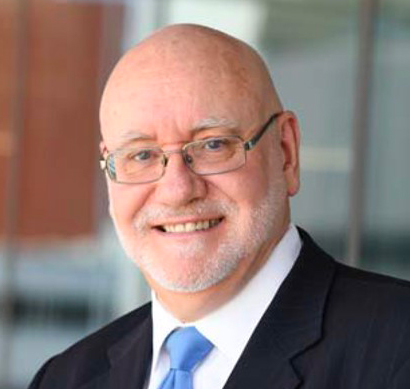
Colin brings a wealth of experience, having been guided by esteemed mentors like AES Fellows Jerry Winston and Dr. Anona Armstrong, and having worked alongside pioneers such as Social Worker Dr. Elaine Martin and Professor Tom Kiresuk, the creator of Goal Attainment Scaling. His exposure to renowned figures like Dr. Michael Quinn Patton, Professor Michael Scriven, and Dr. Arnold Love through the AES ignited his passion for sharing the deep insights he’s gained from these influential thinkers. Now, as a Life Member and Fellow of the AES, Dr. Sharp is motivated to “pay-back” by helping the next generation of evaluators through the AES Peer Group Mentoring Program.
Colin's journey is rich with foundational roles in the field of evaluation. He was the first Research and Evaluation Manager for the Commonwealth Rehabilitation Service, pioneering program budgeting within the Department of Community Services. As the first Coordinator of the Evaluation Training Network in Victoria, he co-organised the National Evaluation Conference that eventually led to the establishment of the AES. His leadership extended to being the first Chair of the AES Committee on Ethics and Standards, where his efforts helped shape global ethics in evaluation. For these significant contributions, Colin has been recognised with the Outstanding Contribution to Evaluation Award and continues to lead by example through his teaching spanning over 30 years.
In his mentoring, Colin is committed to helping mentees see how evaluation fits into broader strategic and operational contexts, sharing valuable techniques in performance measurement, and deepening their appreciation for the role of evaluation in Australian public governance. With experience mentoring through the Centre for Creative Leadership and coaching graduate teams at the University of South Australia, his style is engaging and flexible, always tailored to the mentee’s needs. Mentees can expect a supportive environment where Colin brings out the best in them, inspiring them to realise their full potential as evaluators.
Associate Mentor: Emma Williams
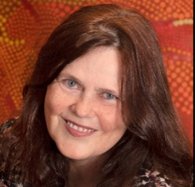
Emma brings a wealth of experience and a deep commitment to giving back to the evaluation community. After benefiting from the guidance of others throughout her diverse career, Emma is motivated to mentor and support the next generation of evaluators. She is eager to share her knowledge and insights.
Emma’s career spans government, NGOs, academia, and private practice as a research and evaluation consultant. She has not only conducted numerous evaluations but has also commissioned and taught evaluation. Beginning her career in Canada, Emma worked on issues of intercultural relations, employment, and tax policies, and earned the Credentialed Evaluator designation from the Canadian Evaluation Society. In Australia, her work has ranged from evaluating environmental issues, including an AES award-winning project on littering, to more sensitive topics such as juvenile sex offending and prison throughcare programs for women. She has also overseen and conducted evaluations on Indigenous family violence programs and contributed to international development projects across countries like Indonesia, Somalia and Sudan.
For the past seven years, Emma has specialised in realist evaluation, while also bringing expertise in diverse methods, such as interviewing, observational techniques, and working with community panels and children. Her current work includes a PhD on evaluation ethics and co-editing a book on realist evaluation, published by Routledge in November 2024.
Emma’s work often addresses difficult subjects, from sexual violence to conversations with survivors of Ebola, and she has faced complex challenges working in prisons and remote areas. She believes in embracing evaluation dilemmas, turning obstacles into learning opportunities.
Emma's mentoring style is that of a facilitator, fostering a safe, respectful space for open dialogue. She expects mentees to be committed, respectful of others’ perspectives, and to ensure confidentiality around project-specific discussions. Emma is committed to preparation, honesty, and building an environment where all can collaborate and grow.
Through her mentorship, Emma hopes to empower mentees to recognise their strength, uncover options, and develop strategies to overcome the dilemmas they encounter.
5. ECB United 2025 (aka ECB for influence and utilisation)
Mentor: Liam Downing | Associate Mentor: Sofia Ahmed
ECB United will go beyond just building evaluation capacity. Our focus is on making sure that your evaluative insights truly make an impact. While evaluation capacity building (ECB) is crucial for strengthening an organisation, it's not just about building capability; it’s also about influencing and supporting decision-making by ensuring that stakeholders at multiple levels across organisations are equipped to meaningfully engage with evaluation processes and insights.
With extensive experience in working to build utilisation and buy-in for evaluation, Sofia and Liam will focus this iteration of ECB United on ECB to build evaluation utilisation and ensure that the influence of rigorous evaluative insight lands well in often-challenging stakeholder contexts.
Mentor: Liam Downing
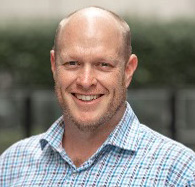
With over 18 years of experience in evaluation across consultancy, higher education, and government, Liam has established himself as a leader in the field. His career has been shaped by a deep commitment to Evaluation Capacity Building, and developmental, realist and utilisation-focused evaluation. Throughout his journey, Liam has consistently drawn on and facilitated mentoring, participating in programs like the NSW AES Evaluadders program and EvalYouth Mentoring. These experiences have given him firsthand insight into the transformative power of mentoring relationships.
Liam sees mentoring as a meaningful way to give back to the profession. His goal is to share the valuable lessons he has gained through his own experience in evaluation, helping others navigate their evaluation careers with confidence and purpose.
Liam’s mentoring approach is deeply practical. He aims to equip mentees with applied knowledge that is directly relevant to their roles, with a special focus on ensuring evaluation insights are both meaningful and impactful for key stakeholders, including senior leaders. Mentees will learn to critically reflect on their experiences in a supportive environment, applying each lesson as they go.
For Liam, mentoring is about creating a safe space for growth, where mentees can develop the skills and confidence needed to influence change and ensure that evaluation is effectively utilised by decision-makers. His structured yet adaptive style ensures that mentees leave the program with a strong understanding of how to build evaluation capacity and create real-world impact
Associate Mentor: Dr Sofia Ahmed
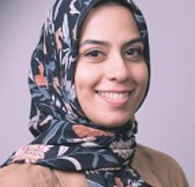
Sofia is a seasoned professional with over 15 years of global experience in the design and delivery of developmental mixed methods evaluations across both public and private sectors. Currently serving as the Manager of Evaluation and Data at the NSW Department of Education, she leads innovative evaluations that inform professional learning design and shape future educational policies. Her work reflects a commitment to rigorous methodologies and a strong theoretical foundation, ensuring that evaluations are not only impactful but also culturally inclusive and equity-focused.
Sofia's journey has been marked by her dedication to fostering collaboration and enhancing leadership capabilities, recently taking on the challenge of building a developmental team within the Department of Education. This experience has deepened her appreciation for mentorship and knowledge sharing, motivating her to give back to the community that has supported her growth in Australia as a woman of South Asian background.
As a member of the Australian Evaluation Society (AES), Sofia believes in the power of the Peer Group Mentoring Program to cultivate a rich learning environment that embraces the strengths of a diverse community. Her extensive background spans education, health, entrepreneurship, regional economic growth, urban planning, and sustainable development policies, enriched by her experience working with international development agencies like the World Bank and the United Nations.
In her mentoring role, Sofia aims to empower mentees with the confidence and skills needed to advocate for evaluation and social impact assessment in organisational leadership. She brings a unique Culturally and Linguistically Diverse (CALD) perspective, emphasising the importance of context in evaluation practices, particularly when working with CALD communities and First Nations agencies.
Sofia's mentoring style is hands-on and collaborative, fostering a safe space for open dialogue and mutual learning. She expects mentees to actively engage in the process, gaining practical insights into evaluation capacity building and influencing organisational leaders. By the end of the program, she hopes her mentees will not only understand how to effectively advocate for evaluation findings but also feel equipped to lead their own evaluation initiatives confidently.
6. Bridging the gap between commissioners and providers – a more relational approach
Mentor: Sigrid Patterson | Associate Mentor: Rae Fry
The focus of Sigrid and Rae’s group will be how evaluation commissioners and evaluation providers can work effectively together to produce great evaluation results. The year will be a guided exploration through four key areas of around three months each: (1) cultivating relational engagement between commissioners and evaluators to support comprehensive, agile and utilisation focussed evaluations; (2) bringing together multi-method data, sense-checking with key stakeholders and communities to tell the important stories; (3) establishing ways for commissioned evaluators to provide internal capability uplift, support and critical friend functions; and (4) exploring new and emerging methods in evaluation as well as re-visiting some older methods such as the use of citizen juries. We hope that commissioners and providers will also gain a deeper understanding of each other's roles, learn some interpersonal skills and project management techniques to work well together, and learn how to prepare reports that provide meaningful evaluative judgements, not just results of data analysis.
Mentor: Sigrid Patterson
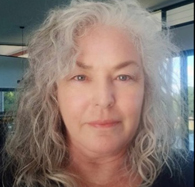
Sigrid is a dedicated mentor with a passion for nurturing new and emerging evaluators. Her motivation stems from a desire to provide support and share her extensive knowledge and experiences while learning from her mentees. Having been a committed member of the Australian Evaluation Society (AES) for many years, Sigrid is eager to give back to a sector that has generously supported her own professional journey.With a strong background in evaluation, Sigrid holds a Master of Public Health (MPH) and a Master of Program Evaluation. Her career has included significant roles in various settings, including leading an evaluation training course across New South Wales local health districts and commissioning key staff to conduct a year-long evaluation course. Sigrid has worked on a whole-of-government ageing strategy in 2010 and collaborated with the Australian Bureau of Statistics (ABS) to gather valuable insights. Her experience encompasses internal evaluation roles in government, particularly in health and human services, leading evaluation and economics teams, and commissioning evaluations with both qualitative and quantitative skills.
Sigrid specialises in fostering effective collaboration between evaluation commissioners and providers, recognising the importance of open, trusting relationships in achieving outstanding results. Her mentorship will guide participants through four key areas: cultivating relational engagement between funders and evaluators, integrating multi-method data to tell impactful stories, enhancing internal capability for commissioned evaluators, and exploring innovative and traditional evaluation methods.
Organised and structured in her mentoring approach, Sigrid creates a safe and respectful environment that encourages openness and critical thinking. She values curiosity and creativity, expecting her mentees to be eager to explore diverse approaches while providing the foundational support necessary for productive discussions.
Associate Mentor: Rae Fry
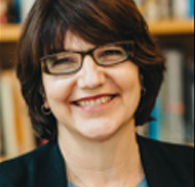
Rae is a Senior Manager at ARTD Consultants. She has worked in evaluation roles in consulting, government and non-profit organisations since 2014. She is a versatile all-round evaluator with experience in health, road safety, education, and the environment, using both qualitative and quantitative methods. Her strengths are stakeholder engagement, project management, and drawing evaluative conclusions from many strands of data.
Before entering the evaluation field, Rae spent 17 years in policy analysis, health consulting, and health/science journalism at the ABC, where she honed her analytical skills and understanding of complex issues. She holds a Master of Public Health and a BSc (Hons) in ecology.
Rae is motivated to support others in their evaluation learning and finds coaching and mentoring to be among the most rewarding aspects of her role. As a long-time member of the Australasian Evaluation Society (AES), she is committed to giving back to the community that has supported her professional growth.
From working as both an evaluation provider and a commissioner, Rae can help both parties understand each other's perspectives, promoting trust and open communication. As an external evaluator she enjoys supporting people and organisations to build internal capability and demystify evaluation jargon.
Rae’s mentoring style is supportive and semi-structured, creating a space where participants feel comfortable to engage and learn from one another. She encourages respectful dialogue, active listening, and a shared enthusiasm for learning.
6. Emerging evaluators
Mentors: Theodore Nabben and Rick Cummings
This group will focus on tapping into and building the knowledge and practice base that already lies within each mentee. Areas for development identified by each mentee will be explored individually and as a group. During the mentoring program and guided by the mentors, mentees will gain confidence in their abilities as evaluators. The opportunity to connect with a network of evaluators will support peer-to-peer learning and provide valuable connections for the future.
Co-Mentor: Theodore Nabben
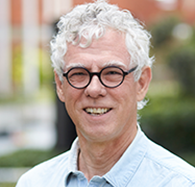
Theo is a passionate mentor with over 20 years of experience in evaluation, specialising in qualitative and participatory approaches across diverse sectors, including international development. Recognized as an AES Fellow in 2024, Theo’s commitment to building the capacity of younger evaluators is unwavering. His formal mentoring journey began in 2020/21 when he supported an emerging Aboriginal researcher as part of his volunteer work with Community First.
With extensive experience in evaluation capacity building, Theo has contributed to the field through collaborations with IPAA, government departments, and numerous organizations. His expertise spans innovative and complexity-aware approaches, including the Most Significant Change methodology.
As a mentor, Theo takes a hands-on approach, guiding mentees through the practical aspects of evaluation. He encourages mentees to embrace complexity and challenges, and to explore innovative methods without being intimidated by the evaluation process. Open and approachable, Theo readily shares his personal experiences and believes in fostering a collaborative learning environment where mentees feel comfortable asking questions and taking initiative.
Theo’s mentoring style is supportive. He is not afraid to admit when he doesn’t have all the answers and is committed to finding them. He encourages transparency, curiosity, and accountability, expecting mentees to follow through on their commitments as they grow and develop in their evaluation careers.
Co-Mentor: Rick Cummings
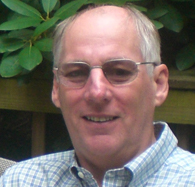
Rick is a dedicated and experienced mentor with a passion for contributing to the careers of emerging evaluators. With over 40 years of experience, Rick has conducted more than 40 evaluations, including work for the World Bank, and held senior evaluation roles in the Western Australian government and at Murdoch University. He holds a PhD in educational evaluation and has taught in the field for nearly 20 years, supervising numerous Master’s and PhD students. His expertise is also reflected in his role as a published researcher and editor of the Evaluation Journal of Australasia (EJA).
Rick’s involvement in the Australian Evaluation Society (AES) is extensive. He has served as President and been an AES Fellow since 2013. He was an inaugural mentor for the AES Mentoring Committee and participated in the AES Group Mentoring programs in 2021, 2022 and 2023. His long-standing commitment to the AES and his mentoring work is a testament to his passion for fostering the next generation of evaluators.
Rick provides a structured yet flexible approach to mentoring. He creates a space for mentees to explore their areas of interest, encouraging them to take ownership of their learning. His sessions often include presentations from mentees, followed by group discussions, ensuring that each participant can contribute and receive personalised feedback. He also sets aside time for mentees to raise challenges from their work, offering constructive insights and guidance.
Through this balance of structure and mentee agency, Rick helps his mentees build knowledge, confidence, and networks that will support them throughout their evaluation careers.
